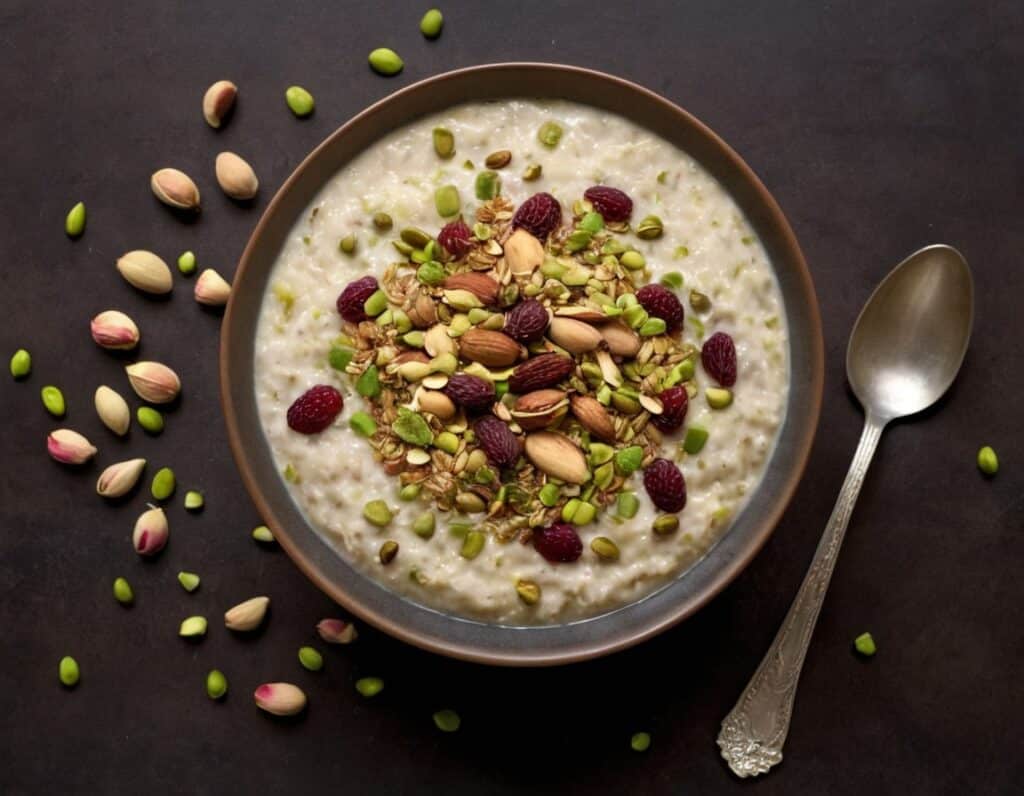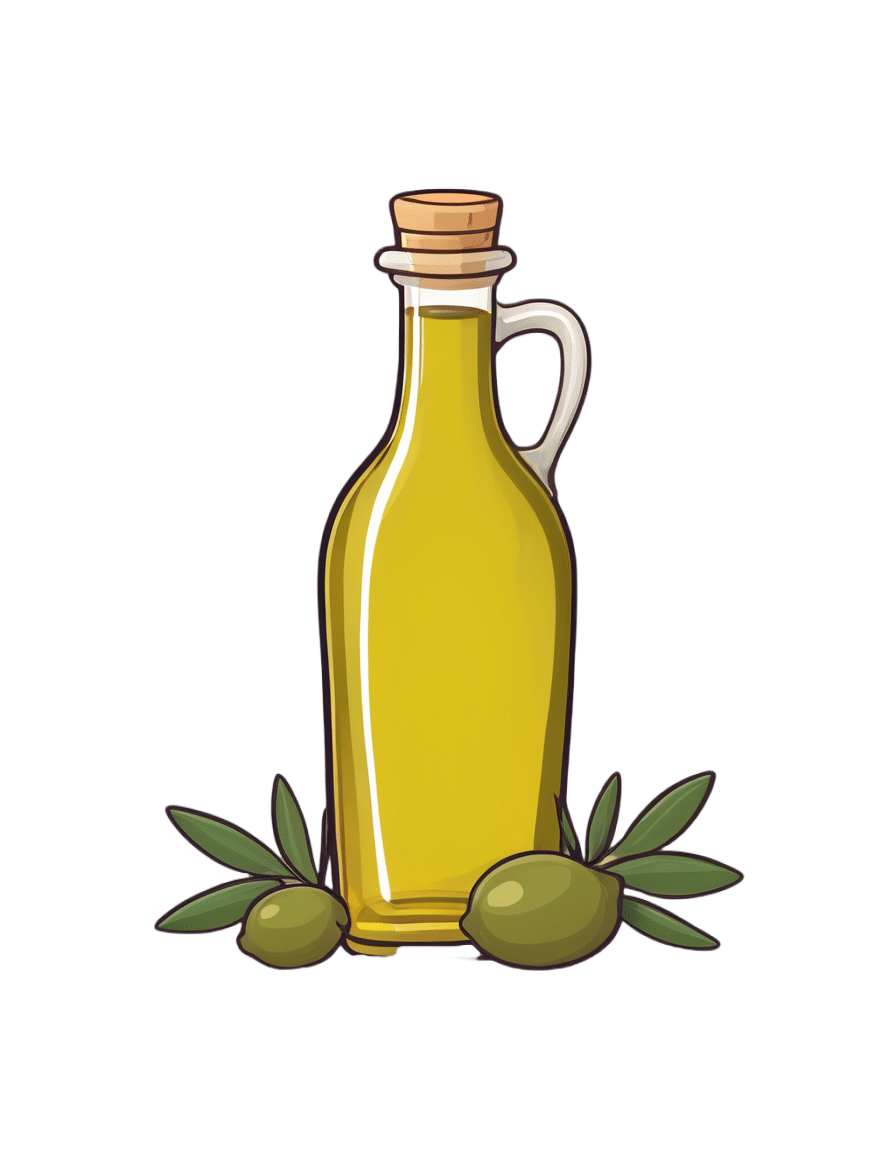
Health Tips for Males Too
10almonds is reader-supported. We may, at no cost to you, receive a portion of sales if you purchase a product through a link in this article.
It’s Q&A Day at 10almonds!
Have a question or a request? You can always hit “reply” to any of our emails, or use the feedback widget at the bottom!
In cases where we’ve already covered something, we might link to what we wrote before, but will always be happy to revisit any of our topics again in the future too—there’s always more to say!
As ever: if the question/request can be answered briefly, we’ll do it here in our Q&A Thursday edition. If not, we’ll make a main feature of it shortly afterwards!
So, no question/request too big or small
❝Articles are very informative and helpful. Maybe it’s me but things seem to lean more toward females. That being said don’t forget us males❞
Rest assured, we could never forget you! We try to make as much as possible of our content applicable to as many as possible of our readers, but of course not everything can be relevant for everyone.
This is, presumably, in response to our recent feature on menopausal health, because previous to that, our next-most-recent main feature that centred women’s health was a month ago—that was about breast cancer, and did have a section on breast cancer in men too. You might also enjoy the book we reviewed recently about prostate health, or our regular sponsor offering testosterone therapy. Please feel free to check out our articles on saw palmetto against male pattern baldness and BPH, as well as mental health issues that disproportionally affect men.
And of course, if you have specific questions/requests about men’s health (or any other health topic) we’re only ever an email away (or use the handy feedback widget, as you did to make this request)!
Don’t Forget…
Did you arrive here from our newsletter? Don’t forget to return to the email to continue learning!
Recommended
Learn to Age Gracefully
Join the 98k+ American women taking control of their health & aging with our 100% free (and fun!) daily emails:

The Purple Parsnip’s Bioactive Brain Benefits (& more)
10almonds is reader-supported. We may, at no cost to you, receive a portion of sales if you purchase a product through a link in this article.
This Root Might Be A Guardian Angel
Sometimes we go searching for supplements to research; sometimes supplements present themselves for examination! In this case, our attention was grabbed by a headline:
Angelica gigas extract emerges as a potential treatment for vascular disease
Angelica who?
Angelica gigas, also called the purple parsnip (amongst other names), is a flowering plant native to Korea. It has assorted medicinal properties, and in this case, it was its heart-healthy benefits that were making news:
❝Ultimately, this study presents clearly evidence that Angelica gigas extract is a promising natural product-based functional food/herbal medicine candidate for preventing or regulating hyperlipidemic cardiovascular complications❞
But it has a lot more to offer…
The root has various bioactive metabolites, but the compounds that most studies are most interested in are decursin and decursinol, for their neuroprotective and cognitive enhancement effects:
❝[C]rude extracts and isolated components from the root of A. gigas exhibited neuroprotective and cognitive enhancement effects.
Neuronal damage or death is the most important factor for many neurodegenerative diseases.
In addition, recent studies have clearly demonstrated the possible mechanisms behind the neuroprotective action of extracts/compounds from the root of A. gigas.❞
That middle paragraph there? That’s one of the main pathogenic processes of Alzheimer’s, Parkinson’s, Huntington’s, and Multiple Sclerosis.
Angelica gigas attenuates (reduces the force of) that process:
❝The published reports revealed that the extracts and isolated components from the root of A. gigas showed neuroprotective and cognitive enhancement properties through various mechanisms such as anti-apoptosis, antioxidative actions, inhibiting mRNA and protein expressions of inflammatory mediators and regulating a number of signaling pathways.
In conclusion, the A. gigas root can serve as an effective neuroprotective agent by modulating various pathophysiological processes❞
Read more: Neuroprotective and Cognitive Enhancement Potentials of Angelica gigas Nakai Root: A Review
Beyond neuroprotection & cognitive enhancement
…and also beyond its protection against vascular disease, which is what got our attention…
Angelica gigas also has antioxidant properties, anti-cancer properties, and general immune-boosting properties.
We’ve only so much room, so: those links above will take you to example studies for those things, but there are plenty more where they came from, so we’re quite confident in this one.
Of course, what has antioxidant properties is usually anti-inflammatory, anti-cancer, and anti-aging, because these things are reliant on many of the same processes as each other, with a lot of overlap.
Where can we get it?
We don’t sell it, but here’s an example product on Amazon, for your convenience
Enjoy!
Share This Post

Anti-Cholesterol Cardamom & Pistachio Porridge
10almonds is reader-supported. We may, at no cost to you, receive a portion of sales if you purchase a product through a link in this article.
This tasty breakfast’s beta-glucan content binds to cholesterol and carries it out of the body; there are lots of other nutritional benefits too!
You will need
- 1 cup coconut milk
- ⅓ cup oats
- 4 tbsp crushed pistachios
- 6 cardamom pods, crushed
- 1 tsp rose water or 4 drops edible rose essential oil
- Optional sweetener: drizzle of honey or maple syrup
- Optional garnishes: rose petals, chopped nuts, dried fruit
Method
(we suggest you read everything at least once before doing anything)
1) Heat the coconut milk, adding the oats and crushed cardamom pods. Simmer for 5–10 minutes depending on how cooked you want the oats to be.
2) Stir in the crushed pistachio nuts, as well as the rose water.
3) Serve in a bowl, adding any optional toppings:

Enjoy!
Want to learn more?
For those interested in some of the science of what we have going on today:
- The Best Kind Of Fiber For Overall Health? ← it’s beta-glucan, which is fund abundantly in oats
- Pistachios vs Pecans – Which is Healthier? ← have a guess
- Can Saturated Fats Be Healthy? ← coconut can!
Take care!
Share This Post

Is “Extra Virgin” Worth It?
10almonds is reader-supported. We may, at no cost to you, receive a portion of sales if you purchase a product through a link in this article.
It’s Q&A Day at 10almonds!
Have a question or a request? We love to hear from you!
In cases where we’ve already covered something, we might link to what we wrote before, but will always be happy to revisit any of our topics again in the future too—there’s always more to say!
As ever: if the question/request can be answered briefly, we’ll do it here in our Q&A Thursday edition. If not, we’ll make a main feature of it shortly afterwards!
So, no question/request too big or small
❝I was wondering, is the health difference important between extra virgin olive oil and regular?❞
Assuming that by “regular” you mean “virgin and still sold as a food product”, then there are health differences, but they’re not huge. Or at least: not nearly so big as the differences between those and other oils.
Virgin olive oil (sometimes simply sold as “olive oil”, with no claims of virginity) has been extracted by the same means as extra virgin olive oil, that is to say: purely mechanical.
The difference is that extra virgin olive oil comes from the first pressing*, so the free fatty acid content is slightly lower (later checked and validated and having to score under a 0.8% limit for “extra virgin” instead of 2% limit for a mere “virgin”).
*Fun fact: in Arabic, extra virgin is called “البكر الممتاز“, literally “the amazing first-born”, because of this feature!
It’s also slightly higher in mono-unsaturated fatty acids, which is a commensurately slight health improvement.
It’s very slightly lower in saturated fats, which is an especially slight health improvement, as the saturated fats in olive oil are amongst the healthiest saturated fats one can consume.
On which fats are which:
The truth about fats: the good, the bad, and the in-between
And our own previous discussion of saturated fats in particular:
Can Saturated Fats Be Healthy?
Probably the strongest extra health-benefit of extra virgin is that while that first pressing squeezes out oil with the lowest free fatty acid content, it squeezes out oil with the highest polyphenol content, along with other phytonutrients:
If you enjoy olive oil, then springing for extra virgin is worth it if that’s not financially onerous, both for health reasons and taste.
However, if mere “virgin” is what’s available, it’s no big deal to have that instead; it still has a very similar nutritional profile, and most of the same benefits.
Don’t settle for less than “virgin”, though.
While some virgin olive oils aren’t marked as such, if it says “refined” or “blended”, then skip it. These will have been extracted by chemical means and/or blended with completely different oils (e.g. canola, which has a very different nutritional profile), and sometimes with a dash of virgin or extra virgin, for the taste and/or so that they can claim in big writing on the label something like:
a blend of
EXTRA VIRGIN OLIVE OIL
and other oils…despite having only a tiny amount of extra virgin olive oil in it.
Different places have different regulations about what labels can claim.
The main countries that produce olives (and the EU, which contains and/or directly trades with those) have this set of rules:
International Olive Council: Designations and definitions of Olive Oils
…which must be abided by or marketers face heavy fines and sanctions.
In the US, the USDA has its own set of rules based on the above:
USDA | Olive Oil and Olive-Pomace Oil Grades and Standards
…which are voluntary (not protected by law), and marketers can pay to have their goods certified if they want.
So if you’re in the US, look for the USDA certification or it really could be:
- What the USDA calls “US virgin olive oil not fit for human consumption”, which in the IOC is called “lamp oil”*
- crude pomace-oil (oil made from the last bit of olive paste and then chemically treated)
- canola oil with a dash of olive oil
- anything yellow and oily, really
*This technically is virgin olive oil insofar as it was mechanically extracted, but with defects that prevent it from being sold as such, such as having a free fatty acid content above the cut-off, or just a bad taste/smell, or some sort of contamination.
See also: Potential Health Benefits of Olive Oil and Plant Polyphenols
(the above paper has a handy infographic if you scroll down just a little)
Where can I get some?
Your local supermarket, probably, but if you’d like to get some online, here’s an example product on Amazon for your convenience
Enjoy!
Share This Post
Related Posts

Do CBD Gummies Work?
10almonds is reader-supported. We may, at no cost to you, receive a portion of sales if you purchase a product through a link in this article.
It’s Q&A Day at 10almonds!
Have a question or a request? You can always hit “reply” to any of our emails, or use the feedback widget at the bottom!
In cases where we’ve already covered something, we might link to what we wrote before, but will always be happy to revisit any of our topics again in the future too—there’s always more to say!
As ever: if the question/request can be answered briefly, we’ll do it here in our Q&A Thursday edition. If not, we’ll make a main feature of it shortly afterwards!
So, no question/request too big or small
❝I take CBD gummies. I don’t know if they are worth buying. Can you find a study on the effectiveness of gummies❞
If you take them, and you’re not sure whether they’re worth it, then it sounds like you’re not getting any observable benefit from them?
If so, that would seem to answer your question, since presumably the reason that you are taking them is for relaxation and/or pain relief, so if you’re not getting the results you want, then no, they are not worth it.
However! CBD gummies are an incredibly diverse and not-well-studied product, so far, given the relative novelty of their legality. By diverse we mean, they’re not well-standardized.
In other words: the CBD gummies you get could be completely unlike CBD gummies from a different source.
CBD itself (i.e. in forms other than just gummies, and mostly as oil) has been studied somewhat better, and we did a main feature on it here:
And while we’re at it:
Cannabis Myths vs Reality ← This one is about cannabis products in general, and includes discussion of THC content and effects, which might not be so relevant to you, but may to some readers.
Companies selling CBD and CBD gummies may make bold claims that are not yet backed by science, so if you are buying them for those reasons, you might want to be aware:
Selling cannabidiol products in Canada: a framing analysis of advertising claims by online retailers
One thing that we would add is that even though CBD is generally recognized as safe, it is possible to overdose on CBD gummies, so do watch your limits:
A Case of Toxicity from Cannabidiol Gummy Ingestion
Take care!
Don’t Forget…
Did you arrive here from our newsletter? Don’t forget to return to the email to continue learning!
Learn to Age Gracefully
Join the 98k+ American women taking control of their health & aging with our 100% free (and fun!) daily emails:

Fight Inflammation & Protect Your Brain, With Quercetin
10almonds is reader-supported. We may, at no cost to you, receive a portion of sales if you purchase a product through a link in this article.
Querying Quercetin
Quercetin is a flavonoid (and thus, antioxidant) pigment found in many plants. Capers, radishes, and coriander/cilantro score highly, but the list is large:
USDA Database for the Flavonoid Content of Selected Foods
Indeed,
❝Their regular consumption is associated with reduced risk of a number of chronic diseases, including cancer, cardiovascular disease (CVD) and neurodegenerative disorders❞
~ Dr. Aleksandra Kozłpwsla & Dr. Dorota Szostak-Wegierek
Read more: Flavonoids—food sources and health benefits
For this reason, quercetin is often sold/consumed as a supplement on the strength of its health-giving properties.
But what does the science say?
Quercetin and inflammation
In short, it helps:
❝500 mg per day quercetin supplementation for 8 weeks resulted in significant improvements in clinical symptoms, disease activity, hs-TNFα, and Health Assessment Questionnaire scores in women with rheumatoid athritis❞
Quercetin and blood pressure
It works, if antihypertensive (i.e., blood pressure lowering) effect is what you want/need:
❝…significant effect of quercetin supplementation in the reduction of BP, possibly limited to, or greater with dosages of >500 mg/day.❞
~ Dr. Maria-Corina Serban et al.
Quercetin and diabetes
We’re less confident to claim this one, because (almost?) all of the research so far as been in non-human animals or in vitro. As one team of researchers put it:
❝Despite the wealth of in animal research results suggesting the anti-diabetic and its complications potential of quercetin, its efficacy in diabetic human subjects is yet to be explored❞
Quercetin and neuroprotection
Research has been done into the effect of quercetin on the risk of Parkinson’s disease and Alzheimer’s disease, and they found…
❝The data indicate that quercetin is the major neuroprotective component in coffee against Parkinson’s disease and Alzheimer’s disease❞
Read more: Quercetin, not caffeine, is a major neuroprotective component in coffee
Summary
Quercetin is a wonderful flavonoid that can be enjoyed as part of one’s diet and by supplementation. In terms of its popular health claims:
- It has been found very effective for lowering inflammation
- It has a moderate blood pressure lowering effect
- It may have anti-diabetes potential, but the science is young
- It has been found to have a potent neuroprotective effect
Want to get some?
We don’t sell it, but for your convenience, here’s an example product on Amazon
Enjoy!
Don’t Forget…
Did you arrive here from our newsletter? Don’t forget to return to the email to continue learning!
Learn to Age Gracefully
Join the 98k+ American women taking control of their health & aging with our 100% free (and fun!) daily emails:

Resveratrol & Healthy Aging
10almonds is reader-supported. We may, at no cost to you, receive a portion of sales if you purchase a product through a link in this article.
Resveratrol & Healthy Aging
Resveratrol is the compound found in red grapes, and thus in red wine, that have resulted in red wine being sometimes touted as a heart-healthy drink.
However, at the levels contained in red wine, you’d need to drink 100–1000 glasses of wine per day (depending on the wine) to get the dose of resveratrol that were associated with heart health benefits in mouse studies.
(if you are not a mouse, you might need to drink even more than that)
Further reading: can we drink to good health?
Resveratrol supplementation
Happily, resveratrol supplements exist. But what does resveratrol do?
It lowers blood pressure:
Effect of resveratrol on blood pressure: a meta-analysis of randomized controlled trials
It improves blood lipid levels:
It improves insulin sensitivity:
It has neuroprotective effects too:
Resveratrol promotes clearance of Alzheimer’s disease amyloid-beta peptides
Is it safe?
For most people, it is generally recognized as safe. However, if you are on blood-thinners or otherwise have a bleeding disorder, you might want to skip it:
Antiplatelet activity of synthetic and natural resveratrol in red wine
You also might want to check with your pharmacist/doctor, if you’re on blood pressure meds, anxiety meds, or immunosuppressants, as it can increase the amount of these drugs that will then stay in your system:
Resveratrol modulates drug- and carcinogen-metabolizing enzymes in a healthy volunteer study
And as ever, of course, if unsure just check with your pharmacist/doctor, to be on the safe side.
Where to get it?
We don’t sell it, but here’s an example product on Amazon for your convenience
Enjoy!
Don’t Forget…
Did you arrive here from our newsletter? Don’t forget to return to the email to continue learning!
Learn to Age Gracefully
Join the 98k+ American women taking control of their health & aging with our 100% free (and fun!) daily emails:








